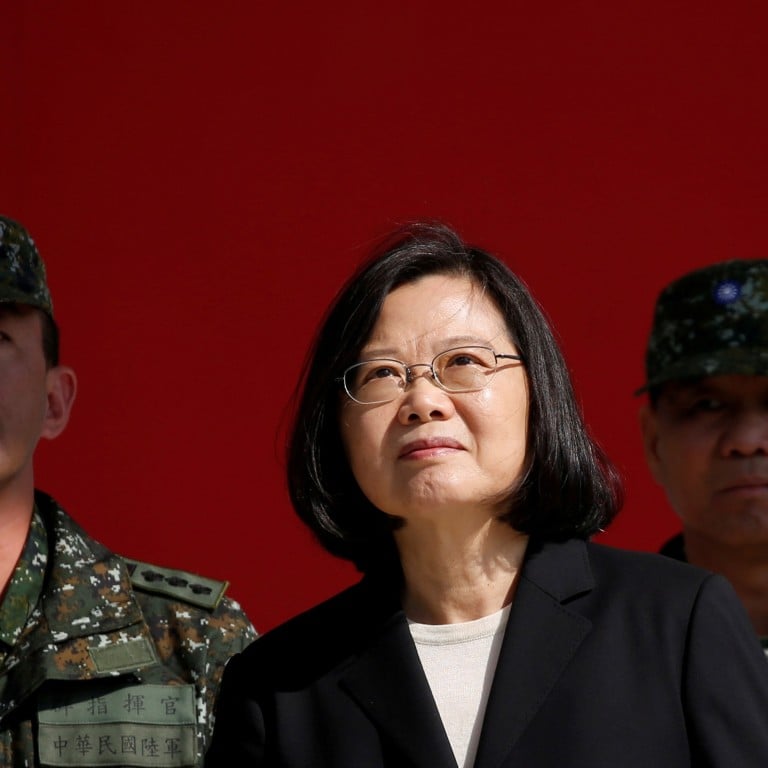
Taiwan President Tsai Ing-wen warns citizens to be on guard against China-backed media ‘infiltration’, citing Reuters report
- Reuters cited evidence that Chinese authorities had paid at least five Taiwan media groups for coverage to sway popular sentiment
- The commissioning of such items by China is potentially explosive as 2020 presidential election approaches
Taiwan President Tsai Ing-wen urged citizens to stay on alert for Chinese-financed media “infiltration” after a Reuters report of a Beijing-backed media campaign in the self-ruled island which China considers its own.
Tsai said on Saturday the Reuters report confirmed growing concerns over Chinese attempts to influence press coverage on the island.
“The story to some extent confirmed that these concerns aren’t baseless,” Tsai told reporters in the southern city of Kaohsiung.
“The Chinese infiltration in Taiwan is actually omnipresent and we hope that all citizens could stay on high alert for such infiltration, which includes fake news,” Tsai added.
The report cited evidence that Chinese authorities had paid at least five Taiwan media groups for coverage in various publications and on a television channel in a campaign to sway popular sentiment in the island.
The placement of stories by companies and special interests is common in Taiwan, yet the commissioning of such items by China is potentially explosive on the island, which is increasingly sensitive about mainland efforts to influence opinion.
The Taiwan Affairs Office, responsible for overseeing China’s policies towards Taiwan, did not respond to requests for comment on the Reuters report.
Beijing tries to woo Taiwan hearts and minds with paid ‘news’
In a statement Tsai’s ruling Democratic Progressive Party (DPP) said it would investigate issues raised in the report.
“The party seriously urges the Communist authorities in Beijing not to overlook the Taiwanese people’s determination to defend democracy and freedom,” the DPP said.
Beijing’s campaign comes at a time of growing concern over Chinese influence ahead of Taiwan’s 2020 presidential elections.
In June, tens of thousands of people rallied to call for the regulation of “red media” – outlets that they said had run favourable coverage of a China-friendly presidential candidate ahead of elections in January.
Commenting on the Reuters article, Taiwan’s Foreign Affairs Minister Joseph Wu wrote on Twitter that the story had exposed China’s efforts to influence public opinion in Taiwan.
“The people must rally around the flag, not listen to false prophets who accept dirty cash & preach bowing to Beijing & spurning the #US,” Wu wrote.
Relations between Beijing and Taipei have become more tense since Tsai took office in 2016. Beijing suspects her of pushing for the island’s formal independence and has sought to assert its sovereignty with measures including military drills.

